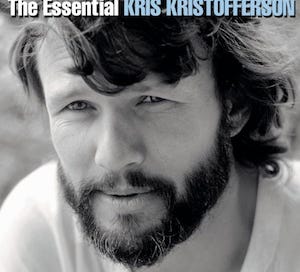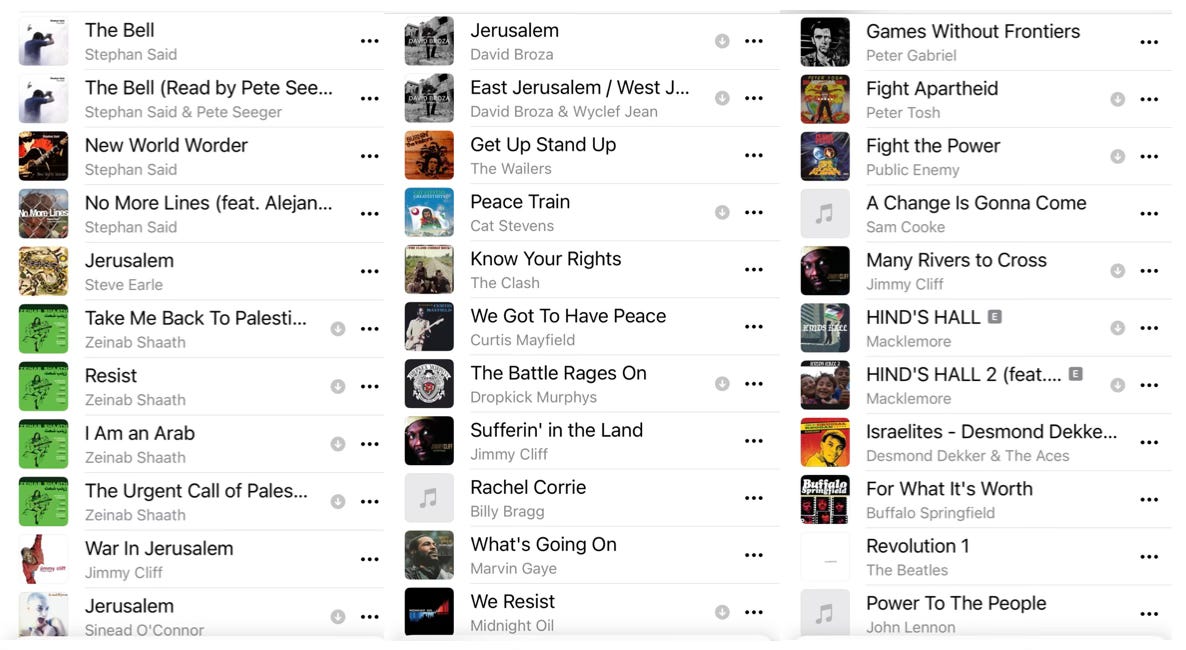Kris Kristofferson has died at 88. A country music legend, the Texas-born singer singer-songwriter cut across genres, writing “literary yet plain-spoken compositions (that) infused country music with rarely heard candor and depth.” Kristofferson — like his closest musical friends, Willie Nelson, Johnny Cash, Waylon Jennings, and Merle Haggard — was rooted in old-school country but never fit comfortably with its modern trappings. In the fragmented world of marketed music, he was been reclassified as a roots performer, but as with all efforts to pigeonhole the truly original this designation does not do him justice.
There was a lyrical depth that allowed his songs to connect to listeners, to be more than the background noise that the country machine pushes out. The titles of his classic songs roll off the tongue: “Me and Bobbie McGee,” “Sunday Morning Coming Down,” “Help Me Make It Through the Night,: “For the Good Times.” These are songs that explore the great themes of literature: loneliness and love, the limits of freedom, existential dread, God.
The title track of his final studio release, Feelin’ Mortal, while not a classic in the Kristofferson canon, does offer a summation of his gifts.p, even if his voice has frayed beyond repair.
“Feelin’ Mortal” is a meditation on aging, one that captures the sense of helplessness and growing understanding that the singer is no longer the man he once was. Physical decline. Fear. He is “Wide awake and feeling mortal,” he sings in a shaky voice, redolent of his Texas roots. Fully conscious. Aware of time and what it does. “At this moment in the dream” — life — he takes stock, considers, “That old man there in the mirror / And my shaky self-esteem.”
Cliche? Maybe, but the wear and tear in the voice keeps it real. Who is this man in the mirror? he asks. I ask myself. He’s feeling mortal, as he sings. He’s taking stock. And in the chorus, he asks God if he is “where (he) ought to be.” The answer is self evident:
I've begun to soon descend Like the sun into the sea And I thank my lucky stars From here to eternity For the artist that you are And the man you made of me
Like Johnny Cash on “Hurt,” the Nine Inch Nails song Cash made his own, Kristofferson demonstrates the vulnerability that we all feel when we realize there a far fewer days ahead than behind us. It is not an easy listen, but no one said aging was easy — or that art should not ask effort of us.
I’ve been feeling very mortal of late. The last few years have been full of loss — my mom, a mentor, a close friend. The world is in disarray. I’m tired. But Like Kristofferson, I know
I'm a winner either way For the laughter and the loving That I'm living with today
*
If you haven’t noticed, I relate to the world through music — not as a musician, but as a listener. It has influenced my work as a poet and has been a focus — one of many — of my critical writing.
Like many, I reacted in horror when Hamas slaughtered 2,200 Israelis on Oct. 7, only to find that horror overwhelmed by the immoral onslaught Israel unleashed on Gaza in its wake. I written often about the conflict over the last year, trying to put my anger into words and to address the deep ambivalence that comes with being a Jew in his early ‘60s, who grew up being taught to revere the State of Israel, but who also refuses to ignore the immorality of occupation and Israel’s increasingly theocratic bent.
This is just a fraction of the songs that have helped me make sense of what I see in Haaretz, The New Times, or Al Jazeera. Three artists — Stephan Said, Zeinab Shaath, and David Broza — write about the region from experience, while others — the reggae stars Jimmy Cliff, Bob Marley, Peter Tosh, and Desmond Dekker — link the war to the larger world order.
I am a humanist, a socialist, and a pacifist. As such, the suffering of the Palestinian people under the boot of what Jimmy Carter called an Israeli Apartheid regime is my primary concern. The war being waged today — really, a continuation of a century-long battle — is both immoral and counterproductive. If we are to get beyond it, we have to move on from the colonial model of ethnology-states and acknowledge the humanity of the people who have been forced into subjugation since the founding of Israel in 1948.
In the short term, we need a ceasefire and release of hostages and political prisoners. A single multi-ethnic and multi-religious state in which all have equal rights must ultimately follow.
None of this is going to happen unless Israel is forced to the table — by a multinational effort to broker a peace along with a vibrant anti-war and Palestine-liberation movement.





